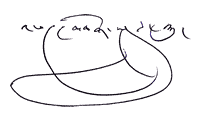Dear friends near and far,
As always, I hope this message finds you well, healthy and happy. Today, the 10th day of the 9th lunar month, is Kyabchok Soktse Rinpoche’s anniversary and on this special Guru Rinpoche day, I would like to share with you some simple benchmarks to measure your level of progress in your practice.
When we start practicing the Dharma, we all go through five successive stages: first, we lack any understanding at all; next, we form misunderstandings; then, we progressively go through partial understanding, near-complete understanding, and perfect understanding. These five stages equally apply to the view, practice, and conduct.
First, lacking understanding of the view is the general condition of worldly people, who perceive a self where there is no self. Here, ‘view’ signifies the true nature of things, which all beings fail to see due to their self-clinging.
Misunderstanding of the view refers to additional concepts we form based on our sense of self. Thus, people imagine the self to be permanent, real, or pure, and may give it all sorts of other labels and names. This type of additional conceptualization is a misunderstanding of the view.
To partially understand the view is to recognize the absence of self, understanding that ultimately, there is no true, permanent, independently existing, personal self.
Near-complete understanding extends this perception of a lack of self to all perceived objects, seeing that nothing that we perceive on the outside exists in any substantial way.
Perfect understanding of the view is the understanding that neither perceived objects nor the perceiving mind, which we experience as a subject, substantially exist. This is the complete understanding of the view, which is the ground of all things, their essence and true nature—that is, lack of intrinsic existence.
Next, the practice is to cultivate this view. When we lack all understanding, whatever we practice furthers that lack of understanding. That is, all our worldly undertakings, whether we are reading a book or drawing a picture, are distractions that further keep us from recognizing the view. Giving into distraction and wandering thoughts, we practice lack of understanding.
To practice misunderstanding is to cultivate the false concepts we have formed about the self or the true nature of things. To practice partial understanding is to cultivate the recognition of selflessness. To practice near-complete understanding is to cultivate the recognition of the insubstantiality, or lack of true existence, of all perceived objects. Finally, the practice of perfect understanding consists in study, reflection, and meditation that cultivate the recognition of both subject and object’s lack of intrinsic existence.
Thirdly, conduct consists in the actions or behaviors in which we engage based on our level of understanding. Generally speaking, all worldly beings conduct themselves based on a total lack of understanding. Based on misunderstanding, they may additionally engage in wrong or harmful actions.
As practitioners, if we progress in our understanding, we may first be motivated by renunciation to behave a certain way—this is conduct based on partial understanding. When we progress onwards to behave altruistically, that may be conduct based on near-complete understanding. Finally, and very rarely, we may be impelled by a complete lack of clinging, true bodhichitta which leads to the conduct that is based on perfect understanding.
In this way, our conduct progresses in parallel to our understanding. Therefore, we must first establish the correct view, and correct practice and conduct will naturally follow. And all three are supported by mindfulness, introspection, and carefulness.
Anyone who practices the Dharma goes through these successive stages of understanding. Therefore, I believe it is crucial for us all to be able to recognize them, and thereby identify our own level of progress on the path. This is why I wanted to remind you of these five levels of understanding, that you may keep them in mind on this Guru Rinpoche day.
With all my love and prayers,
Sarva Mangalam.

Phakchok Rinpoche
Translations
Català
简体中文
繁體中文
Français
Deutsch
Ελληνικά
Bahasa Indonesia
日本語
Polski
Português
Русский
Español
ภาษาไทย
Українська
Tiếng Việt






Responses